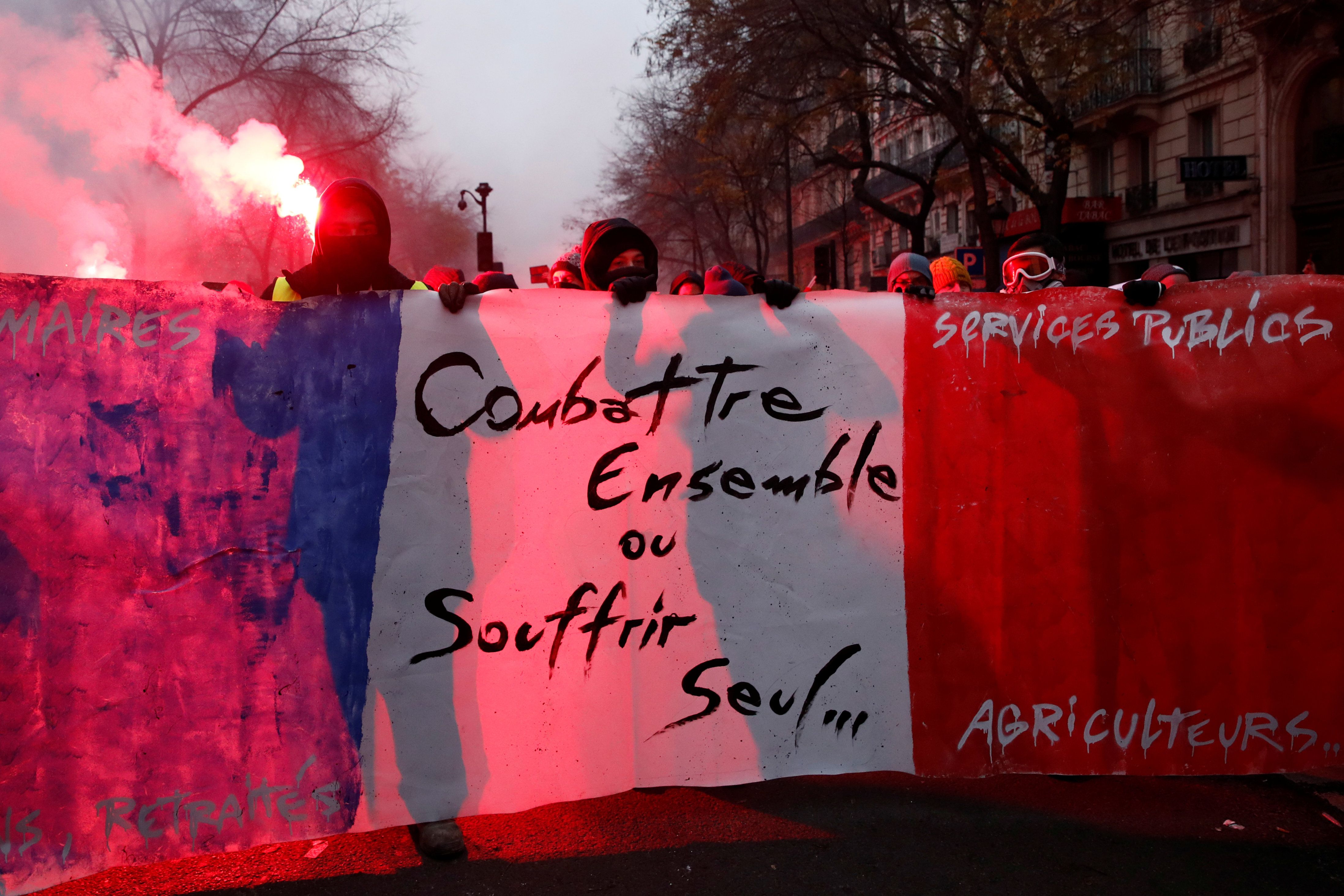Macron not backing down over pensions – Despite six days of mass unrest that has paralyzed Paris' public transport system and dented both tourism and Christmas retail, the government will stand firm on a proposal to reform and unify the country's 42 different pension plans. France's pension system, one of the most generous of any major industrialized country, has major budget shortfalls that contribute to the country's ballooning deficit. Last year, Macron abandoned a proposed fuel price hike that ignited the Yellow Vest movement. But overhauling France's "welfare state" was central to his 2017 election platform, and acquiescing to protesters this time around would be political suicide. France's prime minister – tapped to lead the pension reform project – is expected to announce the plan's final details tomorrow. We're watching to see how this might escalate things further.
The future of Muslim migrants in India – India's parliament is currently debating a controversial bill that would open a new path to Indian citizenship for migrants from Pakistan, Afghanistan, and Bangladesh— provided that they are not Muslims. Supporters of the measure say it offers safe haven to persecuted minorities from those countries, but critics say playing religious favorites violates the secular principles of the Indian state. Since first coming to power in 2014, Prime Minister Narendra Modi's Hindu nationalist BJP party and its hardline affiliates have taken steps to boost the primacy of Hinduism in India's public life, creating a climate of deepening uncertainty for the country's 200 million Muslims.
Saudi Arabia ends restaurant gender segregation – In a landmark decision Sunday, Saudi Arabia scrapped a decades-old rule that required restaurants to segregate seating areas and entrances according to sex and marital status. Over the past two years, Crown Prince Mohammed bin Salman (MBS) – the country's de facto leader and the first from a new generation– has led a major effort to liberalize Saudi Arabia's extremely conservative society, lifting restrictions on women driving, welcoming in movie theaters for the first time in decades, and permitting women to travel without their male relatives' approval. But these moves have been accompanied by a sustained crackdown on dissent – in many cases, the authorities have targeted precisely the women who fought for some of the freedoms recently granted.
What We're Eating
Grandma's Little Ears – Earlier this year, the Times reports, a restaurant in the southern Italian city of Bari illegally received a large shipment of orecchiette, the "little ear" pasta native to the area, without recording where it came from. This violated strict EU and Italian laws on food origin. Suspicion immediately fell on an unlikely target: le nonne (the grandmas) who sell homemade orecchiette on the streets of the old town. The grandmas earn little for selling small packets of the stuff to individual buyers. Had they secretly banded together to sell on a more industrial scale? Their artisanal trade is now in danger of being regulated by the authorities in a battle that pits old traditions against modern regulation. We have our money on le nonne and our fork in a bowl of orecchiette con cime di rapa.
